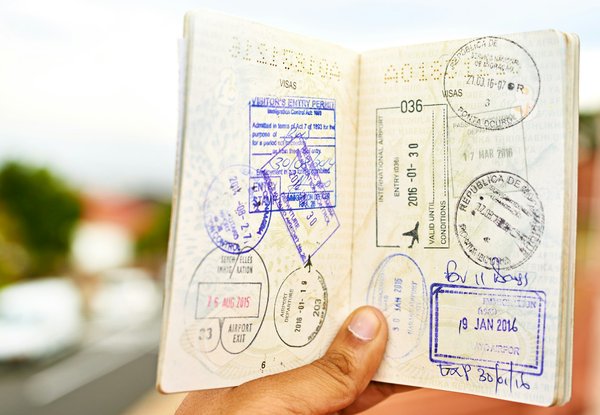Thailand's recent decision to postpone the ETA rollout has left many potential travelers in uncertainty. This delay affects visa-free travel for visitors from 93 countries, creating immediate implications for tourists and the local economy. Understanding the reasons behind this postponement and its potential impact is essential for anyone planning to visit. Stay informed as we explore the latest updates and what this means for your travel plans.
Overview of Thailand's ETA Postponement
Thailand has announced a postponement of its Electronic Travel Authorization (ETA) system, initially scheduled for December 2024. This delay impacts travelers from 93 countries, including the United States, France, and Japan, who were set to benefit from streamlined entry processes. The decision stems from the need for further coordination among government agencies to ensure a seamless rollout. Additionally, challenging weather conditions, such as floods, have contributed to the delay, necessitating adjustments in the implementation timeline.
The ETA system was designed to simplify travel for tourists by allowing online registration before arrival. This would expedite entry through automated immigration gates using a QR code. However, with the postponement, travelers must continue adhering to existing visa-free entry procedures.
The Thai government aims to enhance immigration laws and border security through this initiative. Despite the delay, the ETA promises a more efficient entry process once operational. Travelers are advised to stay updated through official channels for new launch dates and application instructions. For more details on the postponement, you can read more.
Implications for Travelers and Tourism
Changes in Entry Requirements and Processes
With the postponement of Thailand's ETA, travelers from the affected 93 countries must continue using current visa-free entry procedures. This means arriving tourists will not benefit from the anticipated streamlined process. Instead, they will undergo traditional immigration checks, potentially leading to longer wait times at entry points. For those seeking alternative travel advice, it's crucial to stay informed about Thailand travel news through official government updates and advisories.
Effects on Thailand's Tourism and Economy
The delay in the ETA rollout could temporarily affect tourist flow, impacting local businesses reliant on tourism. Efficient entry systems are vital for maintaining Thailand's reputation as a tourist-friendly destination. Despite the current challenges, the long-term benefits of the ETA system remain promising. Once implemented, it is expected to enhance the tourist experience by reducing entry times and increasing convenience. This development aligns with global travel trends toward digitalization and improved border security, ultimately benefiting Thailand's economy by attracting more visitors in the future.
Future of Thailand's ETA System
Revised Timeline and Next Steps
Thailand's Electronic Travel Authorization (ETA) system, initially set for December 2024, is now postponed to ensure thorough coordination among government agencies. The updated timeline projects a phased rollout, with full implementation expected by summer 2025. Travelers should monitor official announcements from the Thai Immigration Bureau for the latest Thailand ETA updates. Staying informed via Thailand travel resources and government advisories is essential for adapting to any changes in entry requirements.
Preparing for the ETA System
Once operational, the ETA system will require travelers from 93 countries to complete an online application before their trip. This process involves submitting biographical data, passport details, and a compliant digital photograph through the official portal, evisa.go.th. Applications are expected to be processed within 24 to 72 hours, and the ETA will allow multiple entries for 60 days. Travelers should regularly check for updates and guidelines to ensure a smooth application experience and to understand how to apply for ETA Thailand efficiently. This preparation will facilitate a seamless transition when the system becomes mandatory.

